Retirement in New Zealand: An Ultimate Guide [2024]
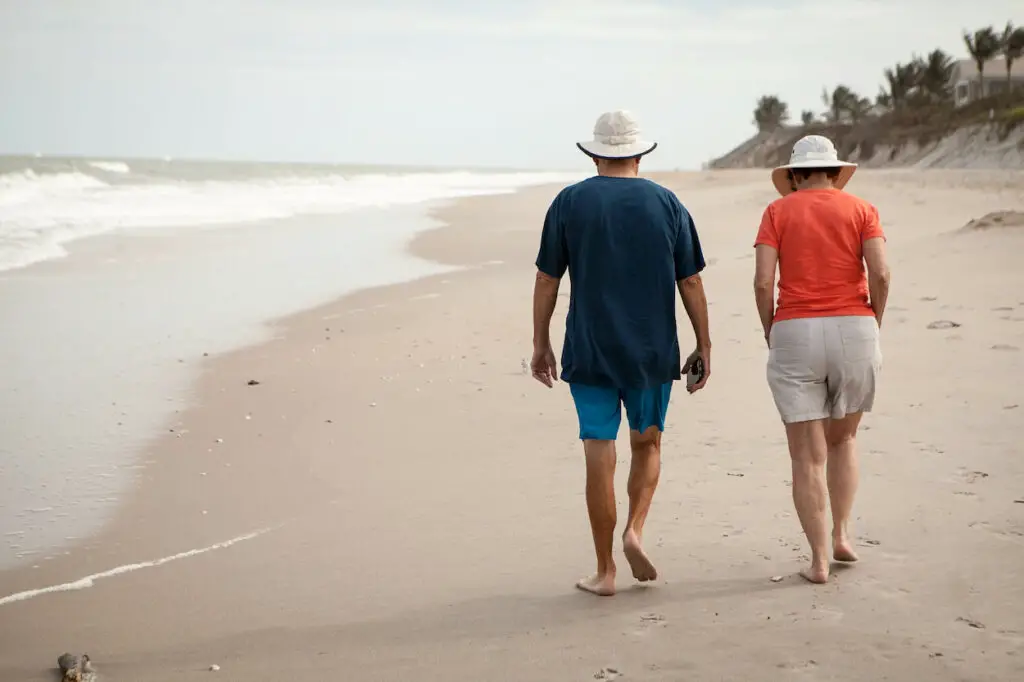
Are you currently working in New Zealand and planning your retirement? Or maybe you are a foreigner considering moving here to spend beautiful years of freedom as a retiree. There are two completely different situations, but they might concern many people.
There is no official retirement age in New Zealand, but most people retire at 65. This is when they start receiving a pension. If you are a foreigner, you must have lived in New Zealand for at least 10 years after turning 20 to qualify for a pension (Superannuation). Plus, these 10 years must include 5 years since you turned 50.
New Zealand has a high average life expectancy of 82 years which makes it a great and safe place to become old. This guide will walk you through all ins and outs of retirement in New Zealand.
Check out the best places to retire in New Zealand in our guide.
How does retirement work in New Zealand?
In New Zealand, retirees receive a pension when they turn 65, which is covered by the government-funded Superannuation scheme. The amount only covers basic needs, so, the majority of people also have savings they can live off after retirement.
The most popular saving scheme is KiwiSaver. When you are an employee, your employer will allocate at least 3% of your gross wage to your retirement savings. This contribution is voluntary, so you decide whether your salary goes there or not. KiwiSaver has around 3 million members in New Zealand, but a third of them aren’t contributing to the fund.
To qualify for KiwiSaver, one must be a New Zealand citizen or resident.
Transferring overseas pension
Foreigners or Kiwis who lived and worked abroad for a long time might be able to receive their overseas pensions in New Zealand. However, this is considered an income and will affect the Superannuation payments you may qualify for.
That said, everyone should have enough savings by the time they are ready to retire. New Zealand isn’t a magical country that will ensure a stressless retirement. With the high cost of living, a pension doesn’t cover all expenses a typical working person has. It’s less than 50% of the average national wage.
Therefore the golden rules of retirement in New Zealand are:
- Having enough retirement savings at 65.
- It’s never too early to save, and you can never save enough.
Read more here.
Retirement age in New Zealand
In contrast to other countries, New Zealand doesn’t have an official retirement age. Yes, that means you can work for as long as you are feeling it! Or you can retire anytime as long as you have enough savings to live off.
New Zealand employers can’t make you quit your job because of your age. However, there are exceptions that apply to the retirement age:
- If you are working in a job with a retirement age — you may not be able to keep working after a specific age
- If your employment agreement was created before 1 April 1992 — agreements were allowed to specify a retirement age.
That said, the typical age people tend to retire is around 65. Superannuation, known as a pension, starts to pay out when you turn 65 years old.
Many New Zealanders still work when they enter retirement because employers tend to allow them to adjust their working hours. This is crucial if you want to have a safe retirement, work and save for as long as you can, even if it’s part-time.
Alternatively, one can change a job to a less stressful one; there are plenty of part-time opportunities; however, not all will consider someone over 65.
Superannuation and KiwiSaver

1. Superannuation
What is Superannuation? NZ Superannuation, also known as NZ Super, is a universal payment for New Zealand citizens and residents who are 65 or older. It’s similar to pension and social security payments in many other countries.
New Zealand Superannuation is paid every two weeks on a Tuesday. How much can you get with NZ Super? The amount you get depends on your living situation and your tax rate. Here are the current rates for 2023; they change every year in April.
| Single | Payment every 2 weeks (before taxes) |
| Live alone or with a dependent child | NZ$1,157.34 |
| Live with someone who’s either: -18 or older (unless they’re a dependent child who’s 18) -visiting and staying for more than 13 weeks. | NZ$1,064.86 |
| Couple | NZ$879.58 each |
After you receive NZ Super, you also will need to pay taxes on it.
To be eligible for NZ Super, you need to meet the following:
- Have a 65th birthday in the next 12 weeks, or
- To be 65 years old
- To be ordinarily resident in New Zealand, the Cook Islands, Niue or Tokelau
- To have lived in New Zealand for at least 10 years since you turned 20. These 10 years must include 5 years since you turned 50.
*You may also be able to include the time spent living in other countries, like Australia, the UK, and South Africa, and others. For this, contact Work and Income to discuss the situation.
Moreover, you must be either:
- A New Zealand citizen
- A permanent resident, or
- Hold a residence class visa
Consequently, people on temporary visas in New Zealand can’t qualify for NZ Super.
Moreover, you can still have an income from a full-time or part-time job and receive Superannuation! The amount won’t change if you have income from a job, investments, etc. That’s the best part about NZ Superannuation.
However, NZ Super will be affected if you receive an overseas pension. For this, you need to contact Work and Income.
Crucial things you need to know about Superannuation
- You won’t be able to live comfortably on only Superannuation. It doesn’t pay for a lifestyle – it only covers basic living costs.
- If you have a job or investment income, your superannuation payments won’t be affected.
2. KiwiSaver
What is KiwiSaver?
KiwiSaver is the second most important financial element of your retirement in New Zealand after Superannuation. It’s a voluntary savings scheme that helps to prepare for retirement. KiwiSaver is available for all New Zealand citizens and permanent residents living or normally living in New Zealand.
KiwiSaver providers are private companies, and you can choose the fund that suits you best but also change it at any time. You can find a suitable to you fund here.
When signing up, you select a percentage of your salary to be deducted and saved with a KiwiSaver scheme provider. Your employer also contributes to your KiwiSaver. The compulsory minimum contribution equals a minimum of 3% of your before-tax salary.
KiwiSaver has about 2.9 million members and manages NZ$57 billion in funds. Needless to say that KiwiSaver plays a monumental role in funding retirement for Kiwis. In addition, it helps members to purchase their first homes.
Nonetheless, many people don’t think wisely about their future retirement and don’t contribute to KiwiSaver. Among almost 3 million members, 1,185,466 people aren’t contributing to their savings! That means they aren’t planning for their retirement well.
So, what can you do with all the money in your KiwiSaver account? Generally speaking, you can only access your KiwiSaver when you reach retirement age (except for serious illness, moving overseas, and buying a first home). So, you’re eligible to withdraw all your savings when you reach 65. This is the age of eligibility at the moment.
In addition, you can get a bonus from the government each year, which is NZ$521.43. For this, you must have contributed at least NZ$1042.86 in the period 1 July to 30 June. The contributions made by employers are excluded.
Besides, many Kiwis use their KiwiSaver to purchase a house because they can take out money easily, assuming they have been with KiwiSaver for 3 or more years.
Lastly, KiwiSaver even offers a grant of NZ$10,000 towards your first home if you have been contributing for 3 or more years.
Who is eligible for KiwiSaver? Everyone can join KiwiSaver assuming they are:
- a New Zealand citizen, or a permanent resident
- normally live in New Zealand
However, some categories of people are excluded from eligible categories, such as holders of temporary, visitor, work, or student visas.
Generally, you will be automatically enrolled into KiwiSaver if you are:
- eligible to be enrolled
- starting work with a new employer
- aged between 18 and 65
Read more about KiwiSaver in KiwiSaver annual report 2019.
Sorted
Sorted is a helpful tool for your future retirement in New Zealand. It’s a resource that provides financial guidance developed by the Commission for Financial Capability. Its retirement planner tool is very useful for planning your retirement wisely.
Sorted website helps you:
- tackle debt
- plan and budget
- save and invest
- maximize KiwiSaver
- plan for retirement
- manage a mortgage
You can use a retirement calculator from Sorted to figure out how much money you need to retire comfortably in New Zealand.
Planning for retirement in New Zealand
Of course, it’s advisable to plan retirement as early as you can, regardless of the country you are living in.
One shouldn’t rely on the government to fully support them during retirement. In most cases, it’s your savings and investments which will make up the most of your retirement plan.
That said, about 40% of New Zealanders over the age of 65 rely on NZ Superannuation alone, and another 20% have only little savings. That means they aren’t enjoying a fantastic lifestyle as NZ Super can barely cover one’s needs. Fortunately, at least 40% of retired New Zealanders have enough savings to live off in addition to NZ Super.
While NZ Super (the government pension) can help get you by, it’s not enough to have a comfortable and enjoyable retirement.
The reality is that NZ Super won’t be sufficient for someone who is paying rent or owns a house with a mortgage by the time they retire. When NZ Super was introduced, it was assumed that most retirees would be mortgage-free homeowners. In today’s world, homeownership rates are declining, so we have more people paying rent even by the time when they retire.
So, assuming you plan to retire at 65. Then you would need to save and invest or have another plan to provide the income you want for 25–30 years or more so you can have a desirable lifestyle.
There are many ways you can prepare for retirement, including downsizing or selling your house, paying off a mortgage, or using a reverse mortgage. Of course, maximizing KiwiSaver and saving as much as you can should be your priority.
How to avoid being broke during retirement?
- Contribute to your KiwiSaver as much as you can and at a higher contribution rate.
- Choose a good fund within KiwiSaver.
- Keep your job for as long as possible.
- Pay off mortgage.
- Spend less.
How much money do you need to retire in New Zealand?
Here is the optimal situation you can have when entering retirement in New Zealand is as follows:
- Have at least NZ$100,000 saved
- Own a house without a mortgage
- Have no personal debts and liabilities
That said, it’s a very personal question how much money do you need to retire. The majority of retirees don’t spend nearly as much as they used to, but still, the lifestyle costs a significant amount. According to Massey, most New Zealanders are already mortgage-free by the time they retire, so that’s a big relief for most.
So, if you have your own house, you will need to plan how much money your daily life requires, plus the lifestyle like travel, hobbies, and purchases. That’s why it’s advisable to use retirement calculators and planners such as the one from Sorted.
The studies by Massey in 2018 clearly showed that most Kiwi retirees and pre-retirees believe the NZ Super isn’t enough to fund retirement on its own.
Can you retire in New Zealand as a foreigner?
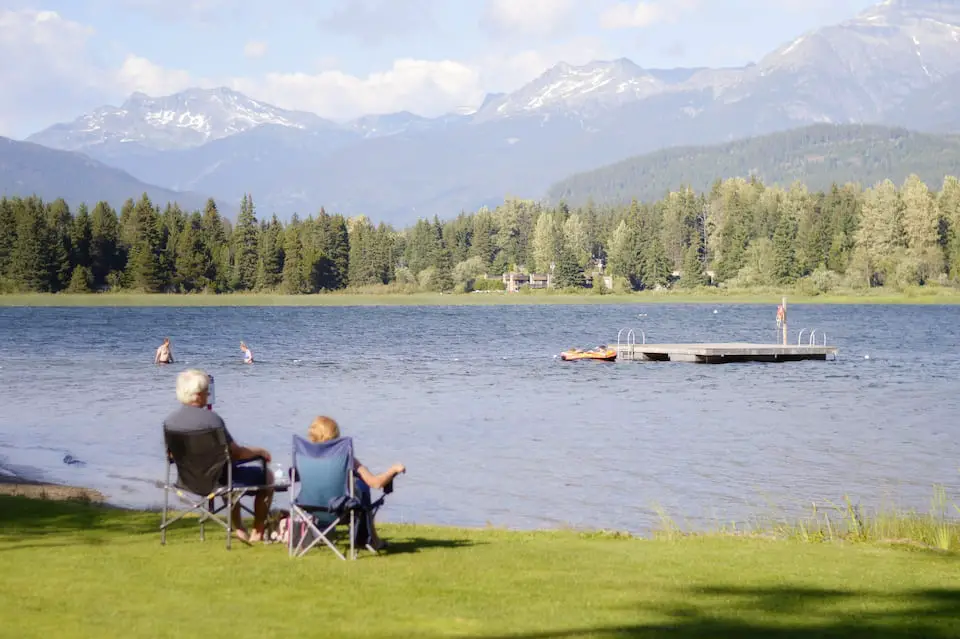
Whether you can retire in New Zealand as a foreigner depends on how long you have been living in New Zealand or whether you have children in New Zealand.
A foreigner can retire in New Zealand in a similar way to a Kiwi can if they are permanent residents. If a foreigner wants to receive Superannuation payments, they must have lived in New Zealand for at least 10 years since they turned 20. These 10 years must include 5 years since they turned 50 years old.
Keep in mind that you can start contributing to saving funds like KiwiSaver only as a permanent resident. They will help you to save enough money for retirement.
Nonetheless, there are few other options you can retire in New Zealand without being a permanent resident there. Immigration New Zealand offers several visas for that situation.
Retirement visas in New Zealand
To be clear from the start, New Zealand isn’t among countries like Thailand or Portugal, which offer resident permits for retirees to enjoy their life in a pleasant climate. The immigration system of New Zealand is strict and is limited to groups of people government wants to see as residents.
There are only several ways to get a New Zealand visa as a person in age, including by having your child living in New Zealand:
- The Parent Resident visa
- The Parent Retirement Resident visa
- The Parent and Grandparent Visitor visa
1.The Parent Resident visa
You can apply for a Parent Resident visa and live in New Zealand permanently if you have a child who is a New Zealand citizen or resident. They must earn enough money and agree to sponsor you. Parent Resident visa is limited to 2,500 per year, and the visa fee starts at NZ$3,180.
Criteria:
- Your sponsoring child, or them and their joint sponsor, must earn enough to sponsor you.
- That requires having a salary of NZ$92,539.20 to invite one parent and NZ$123,385.60 for 2 parents. Read more here.
2. The Parent Retirement Resident visa
You can apply to live in New Zealand permanently if you have a child who is a New Zealand citizen or resident. You will also need to meet our income and investment requirements.
Criteria for Parent Retirement Resident visa:
- You must have NZ$1 million or more to invest in New Zealand for 4 years
- Visa fee starts from NZ$5,260
- Processing time within 47 months
3. The Parent and Grandparent Visitor visa
You can apply for Parent and Grandparent Visitor visa if you have children or grandchildren who are New Zealand citizens or residents. It allows you to travel in and out of New Zealand to visit your family.
This is the most time-limiting visa on the list, allowing you to stay only for a maximum of 18 months in 3 years.
- Visa fee starts from NZ$211
- Processing time within 5 months
If you aren’t fortunate to have children living in NZ, here are a few other more expensive options:
- Retirement visitor visa
- Investor visa
1.Retirement Visitor visa
A Retirement Visitor visa is one of the most accessible visas for retirees who have enough funds and want to spend only a few years in NZ. The visa is valid for up to 2 years.
Criteria for a Retirement Visitor visa:
- To be over 66 years
- Have NZ$750,000 to invest
- Have an additional NZ$500,000 to live on
- Have an annual income of NZ$60,000 or more.
The visa fee starts from NZ$3,790.
2. Investor visas
Alternatively, one can move to New Zealand by depositing their investment funds in a New Zealand bank account. The funds must also be invested in New Zealand, e.g., funds, property, etc.
Investor visa 1
The Investor 1 Resident visa requires NZ$10 million to be invested for at least 3 years. Be aware that this visa was closed to new applicants on 28 July 2022.
Investor visa 2
The Investor 2 Resident visa gives you permanent residency in New Zealand but requires a lower investment (NZ$3 million over 4 years) and has an age limit of 65 years. Be aware that this visa was closed to new applicants on 28 July 2022.
Healthcare in New Zealand
As a person of age, accessible, high-quality, and affordable healthcare is a priority. New Zealand offers fantastic and free healthcare but only for its residents or someone on a working visa. Its healthcare system is public and funded by the state.
If you don’t qualify for free healthcare, you can purchase private health insurance such as one from Cigna Global. The use of private health insurance is becoming more popular as a way to avoid long waiting hours in the hospital.
Before you receive a desired visa to New Zealand, whether it’s a temporary visitor visa or a residency, Immigration New Zealand will request a medical certificate that clearly shows any serious health issues you have. The Immigration system is rigid for those with severe illnesses.
Nonetheless, if you are a New Zealander or foreigner with a permanent residency, you don’t have to worry about getting sick in New Zealand.
Retiring in New Zealand: pros and cons
New Zealand is arguably one of the best places in the world to retire, although it’s quite isolated and remote. But if it’s what you are looking for, there is barely a better place on Earth.
New Zealand has plenty of space and a pleasant climate, meaning you can purchase a house in a remote location to enjoy your full-of-freedom-retiree lifestyle.
Many Kiwis spend years working overseas but come back to raise their family or retire. Not without reason! Here are the top pros and cons to spend your retirement years in New Zealand:
| Pros | Cons |
|---|---|
| Warm and pleasant climate | Higher cost of living than in many other places |
| Reasonable cost of living | Higher house prices |
| Reasonable house prices and rents | Strict immigration laws |
| A lot of outdoor opportunities | Remote location and expensive flights out |
| Free healthcare for residents | No free healthcare for non-residents |
| Fantastic nature | |
| Over 2,000 hours of sunshine | |
| Perfect for camping and off-grid living | |
| A very family-friendly place | |
| Very safe | |
| Quietness and peace |
Best places to retire in New Zealand
Here are some of the top favorite places Kiwis prefer to retire, according to Nzseniours. Read our full guide here.
Marlborough
NZ Herald study in 2018 revealed that Marlborough is the favorite place to live among Kiwi retirees. And I tell you, it’s true! When I have been to the region, I saw many older people. And what’s not to love? Marlborough and especially its Tasman District have the most sunshine hours, and Mediterranean climate, grow the most wine and fruits, and are incredibly beautiful.
Nelson is my favorite city in the region. It’s also one of the most popular places among Kiwi retirees. Blenheim is another great option.
Tauranga
Tauranga has long been a popular retirement destination, especially for those coming from Auckland.
It’s close to Auckland (about a 2 hr 30 min drive), so you will be in proximity to friends and family. Yet, it’s away from all the noise and hustle of larger cities like Hamilton and especially Auckland. Living in Tauranga is like living in Fiji, with stunning beaches, sunshine, and a tropical climate.
Kapiti Coast
The Kapiti Coast is a fabulous destination for both holidays and retirement. One of the best parts of this place is the proximity to large cities like Wellington (1 hr drive). You are never far away from civilization.
The area is also full of retirement villages if it’s something you are looking for.
The Waimakariri District
Maybe off the radar of many people and travelers, Waimakariri District is perfect for retirees, especially those moving from Christchurch. The Waimakariri District includes Rangiora, Kaiapoi, and Oxford, which are all full of lifestyle blocks and farms. What’s a dream!
Wanaka
While Queenstown is buzzing with backpackers, Wanaka has a more relaxed vibe to it. It has fewer people, fewer parties, plenty of outdoors, and more space to build or buy a house. It’s a paradise for outdoor lovers with all the mountains, lakes, and rivers. I spend two months in Wanaka and can easily see myself retiring someday.

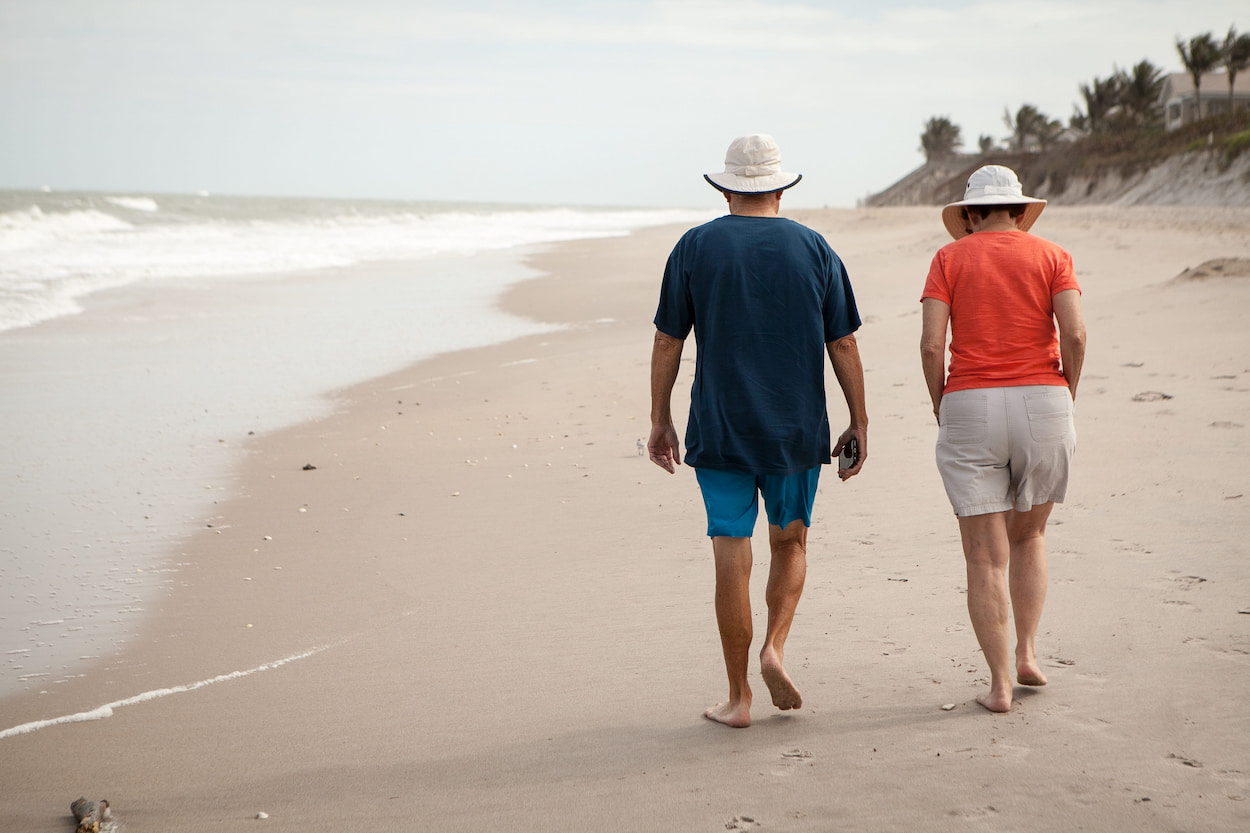

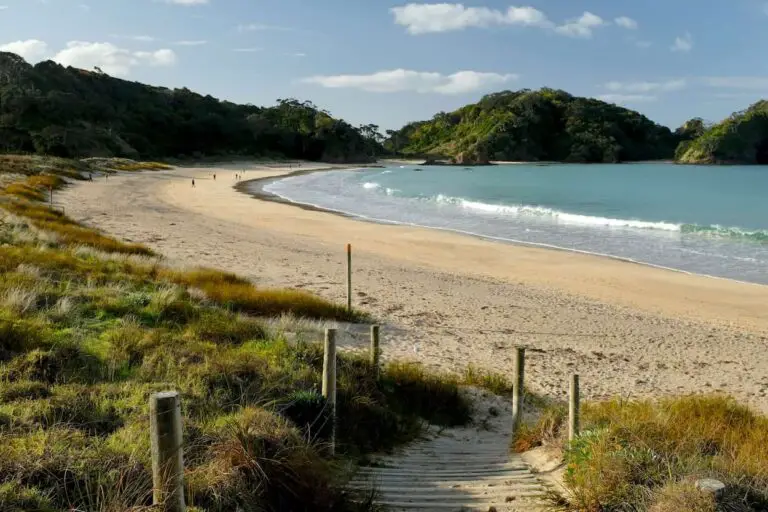
![Cost of Food in New Zealand: How Much To Budget? [2024]](https://simplenewzealand.com/wp-content/uploads/2023/01/Depositphotos_363854088_L-768x512.jpg)
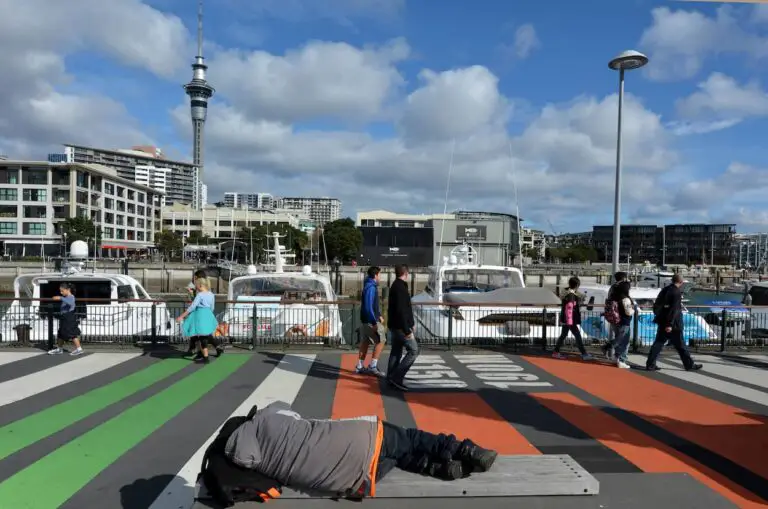
![Using Wise Card in New Zealand: [2024 Guide]](https://simplenewzealand.com/wp-content/uploads/2023/05/IMG_3227-min-2-1-768x576.jpg)
![17 Best And Worst Suburbs in Christchurch [2024 Guide]](https://simplenewzealand.com/wp-content/uploads/2023/09/Park-Hagley-CHCH-768x512.jpg)